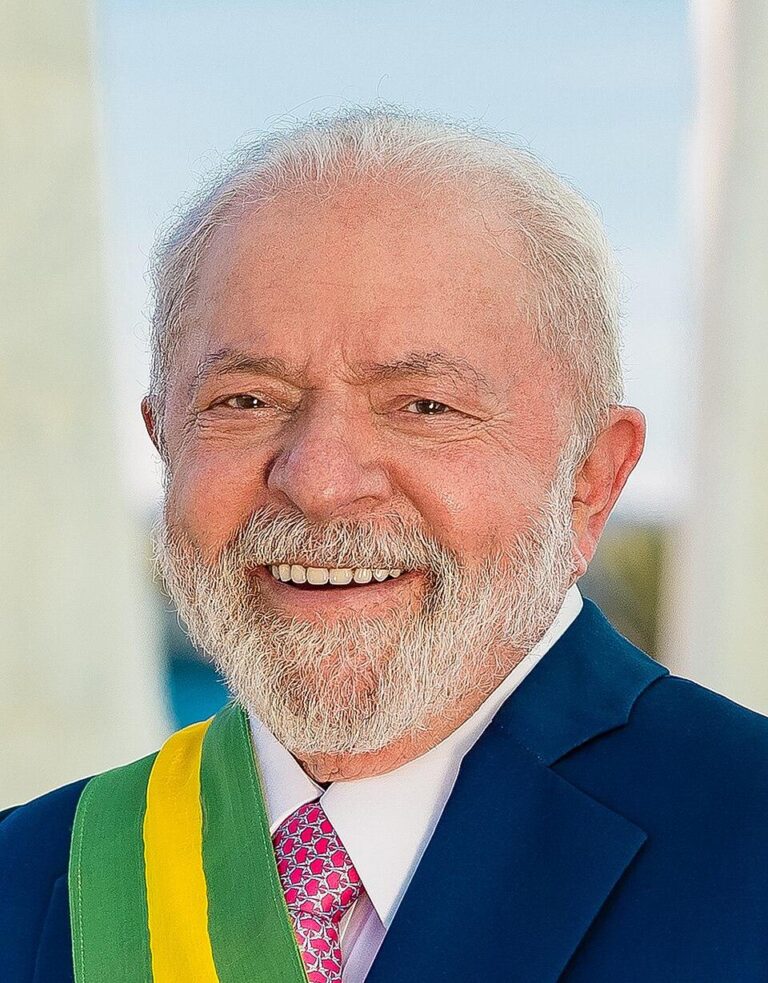At the United Nations General Assembly this week, a tense yet intriguing moment unfolded as Brazilian President Luiz Inácio Lula da Silva and former U.S. President Donald Trump agreed to hold a face-to-face meeting. The encounter, marked by a complex mix of diplomacy and rivalry, took place amid sharp exchanges and guarded smiles between the two leaders. As international observers watch closely, the planned dialogue signals a potential shift in the dynamics between Brazil and the United States, highlighting the intricate interplay of global politics on the world stage.
Lula and Trump Exchange Barbs Amid Tense UN Meeting
Amid the bustling corridors of the United Nations General Assembly, tension escalated as Luiz Inácio Lula da Silva and former U.S. President Donald Trump exchanged veiled insults with well-practiced smiles. The encounter, marked by sharp rhetoric and diplomatic maneuvering, ultimately led to a surprising agreement to hold a private meeting in the coming weeks. Observers noted how both leaders leveraged the global stage to reaffirm their political stances, yet showed a pragmatic willingness to engage in dialogue despite profound ideological differences.
Key moments from the encounter included:
- Lula’s critique of unilateral policies and calls for multilateral cooperation.
- Trump’s defense of his “America First” approach and critiques of Brazil’s economic management.
- Shared commitment to address bilateral trade issues and climate agreements.
| Aspect | Lula’s Position | Trump’s Position |
|---|---|---|
| Trade | Promotes South-South cooperation | Emphasizes bilateral trade dominance |
| Climate | Supports Paris Agreement commitments | Calls for economic growth over restrictions |
| Foreign Policy | Advocates global cooperation | Prioritizes national sovereignty |
Analyzing the Political Implications of the Scheduled Bilateral Talks
The impending talks between Lula and Trump underscore a delicate geopolitical balancing act, where overt cordiality masks deeper strategic calculations. Both leaders appear intent on projecting unity, yet the underlying policy disparities suggest a cautious dance rather than wholehearted alignment. Brazil’s ambition to recalibrate its global partnerships while safeguarding regional interests intersects with the United States’ drive to reassert influence in Latin America, creating a complex interplay that could redefine diplomatic dynamics.
Key political implications to watch include:
- Economic cooperation versus ideological differences: Despite diplomatic smiles, diverging approaches to trade and environmental policy may surface during discussions.
- Regional influence: Lula aims to position Brazil as a counterbalance to U.S. dominance in the hemisphere, potentially fostering new alliances.
- Domestic political optics: Both leaders leverage the talks to boost their images at home, emphasizing strength and negotiation prowess.
| Aspect | Lula’s Agenda | Trump’s Focus |
|---|---|---|
| Trade | Enhanced South-South partnerships | Revival of previous trade agreements |
| Climate Policy | Commitment to Amazon protection | Prioritization of economic growth |
| Diplomatic Tone | Multilateralism emphasis | America-first rhetoric maintained |
Experts Recommend Diplomatic Strategies to Navigate Rivalry and Foster Dialogue
In an atmosphere charged with both tension and cautious optimism, seasoned diplomats emphasize the importance of nuanced communication to de-escalate mounting rivalries. They stress that effective dialogue requires not only recognizing each party’s red lines but also building upon shared interests. Strategies such as back-channel negotiations and incremental confidence-building measures have been highlighted as critical tools to bridge gaps highlighted during last week’s high-profile encounters at the UN. Experts underline that managing optics-balancing public posturing with private sincerity-remains paramount to avoid misinterpretation of intentions.
Among recommended approaches, analysts propose several key tactics to foster constructive engagement:
- Establishing neutral venues where off-the-record conversations can unfold without media scrutiny
- Engaging third-party mediators to moderate discussions and ensure balanced representation
- Leveraging cultural diplomacy to build rapport beyond official agendas
- Implementing phased agreements to gradually build trust before tackling contentious issues
| Diplomatic Tactic | Purpose | Expected Outcome |
|---|---|---|
| Back-channel Talks | Private communication | Reduced public pressure |
| Third-party Mediation | Neutral facilitation | Balanced dialogue |
| Confidence-building | Incremental trust | Improved cooperation |
| Cultural Exchanges | Relational diplomacy | Enhanced mutual understanding |
Concluding Remarks
As Lula and Trump prepare for their upcoming meeting, the global community watches closely, anticipating whether their encounter will mark a turning point in diplomatic relations or merely extend the theatrical tensions witnessed at the UN. With smiles masking sharp political differences, the dialogue between these two influential leaders could shape the geopolitical landscape in the months ahead. Stay tuned for further developments as this high-stakes encounter unfolds.




